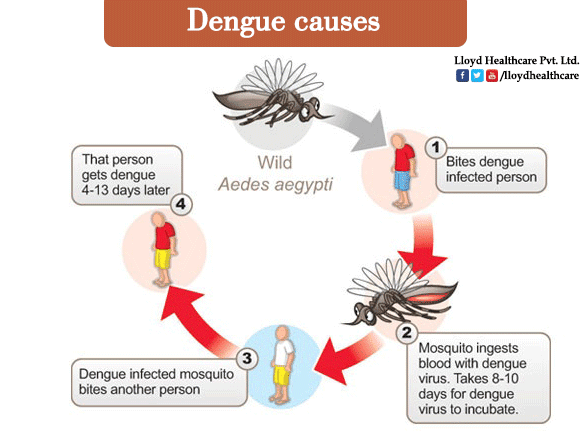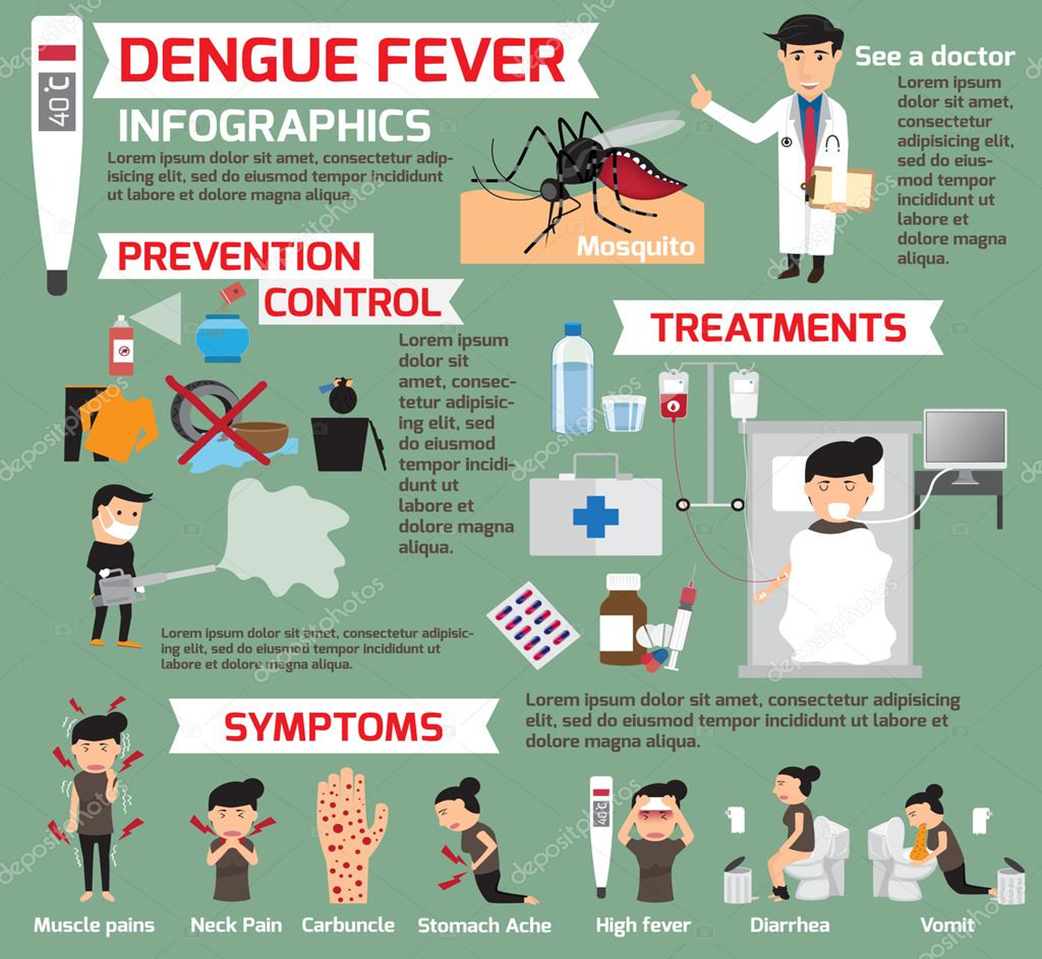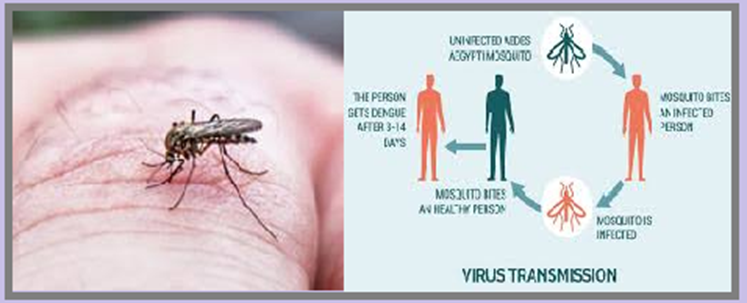DENGUE
Why in news?
Recently, Dengue and other vector-borne diseases which have afflicted one in four Indian families with one or more members over the last three years, according to a survey by social media platform Local Circles, have seen a fresh upsurge in recent weeks across states.
More on news:
- In India, the number of months suitable for dengue transmission by Aedes aegypti mosquitoes has risen to 5.6 months each year.
- Dengue spreads through the bite of two mosquitoes- Aedes aegypti and Aedes albopictus.
- A 2022 study published in the journal GeoHealth projected how the distribution of these mosquitoes will evolve with climate change.
- Currently, Aedes aegypti is prevalent in the southern peninsula, eastern coastline, north-eastern states and the northern plains. Aedes albopictus dominates the eastern and western coastlines, north-eastern states and the lower Himalayas.
- The study projected “expansion of Aedes aegypti in the hot arid regions of the Thar Desert and Aedes albopictus in cold upper Himalayas as a result of future climatic changes.”
- The emergence of dengue in three states offers an understanding of how climate change is driving up not just cases but also widening the geographical spread of the disease.
- Bihar and Odisha are among the eight states in India scoring in the highly vulnerable category in the Climate Vulnerability Index, according to the Council on Energy, Environment and Water.
- Jammu and Kashmir (J&K) falls in the moderately vulnerable category. But temperatures there have never been favourable for the spread of dengue until recently. J&K had not recorded any dengue cases till 2006.
- Temperature and humidity levels in Kashmir are not conducive to the spread of dengue. Jammu had a similar story, but rising temperatures have made it the hub for dengue in J&K.
About Dengue:
- Dengue (DENG-gey) fever is a mosquito-borne illness that occurs in tropical and subtropical areas of the world. Mild dengue fever causes a high fever and flu-like symptoms.
- The severe form of dengue fever, also called dengue hemorrhagic fever, can cause serious bleeding, a sudden drop in blood pressure (shock) and death.
- Millions of cases of dengue infection occur worldwide each year. Dengue fever is most common in Southeast Asia, the western Pacific islands, Latin America and Africa. But the disease has been spreading to new areas, including local outbreaks in Europe and southern parts of the United States.
- Researchers are working on dengue fever vaccines. For now, in areas where dengue fever is common, the best ways to prevent infection are to avoid being bitten by mosquitoes and to take steps to reduce the mosquito population.
Symptoms:
- Many people experience no signs or symptoms of a dengue infection.
- When symptoms do occur, they may be mistaken for other illnesses — such as the flu — and usually begin four to 10 days after you are bitten by an infected mosquito.
- Dengue fever causes a high fever -104 F (40 C) and any of the following signs and symptoms:
- Headache
- Muscle, bone or joint pain
- Nausea
- Vomiting
- Pain behind the eyes
- Swollen glands
- Rash
- Most people recover within a week or so. In some cases, symptoms worsen and can become life-threatening. This is called severe dengue, dengue hemorrhagic fever or dengue shock syndrome.
Causes:
- Dengue fever is caused by any one of four types of dengue viruses. dengue fever from being around an infected person. Instead, dengue fever is spread through mosquito bites.
- The two types of mosquitoes that most often spread the dengue viruses are common both in and around human lodgings. When a mosquito bites a person infected with a dengue virus, the virus enters the mosquito. Then, when the infected mosquito bites another person, the virus enters that person's bloodstream and causes an infection.
- After you've recovered from dengue fever, you have long-term immunity to the type of virus that infected you but not to the other three dengue fever virus types. This means you can be infected again in the future by one of the other three virus types. Your risk of developing severe dengue fever increases if you get dengue fever a second, third or fourth time.

Complications:
- Severe dengue fever can cause internal bleeding and organ damage. Blood pressure can drop to dangerous levels, causing shock. In some cases, severe dengue fever can lead to death.
- Women who get dengue fever during pregnancy may be able to spread the virus to the baby during childbirth. Additionally, babies of women who get dengue fever during pregnancy have a higher risk of pre-term birth, low birth weight or fetal distress.
Vaccine:
- In areas of the world where dengue fever is common, one dengue fever vaccine (Dengvaxia) is approved for people ages 9 to 45 who have already had dengue fever at least once. The vaccine is given in three doses over the course of 12 months.
- The vaccine is approved only for people who have a documented history of dengue fever or who have had a blood test that shows previous infection with one of the dengue viruses called seropositivity. In people who have not had dengue fever in the past (seronegative), receiving the vaccine appears to increase the risk of severe dengue fever and hospitalization due to dengue fever in the future.
- Dengvaxia is not available for travelers or for people who live in the continental United States. But in 2019, the U.S. Food and Drug Administration approved the vaccine for people ages 9 to 16 who have had dengue fever in the past and who live in the U.S. territories of American Samoa, Guam, Puerto Rico and the U.S. Virgin Islands where dengue fever is common.



